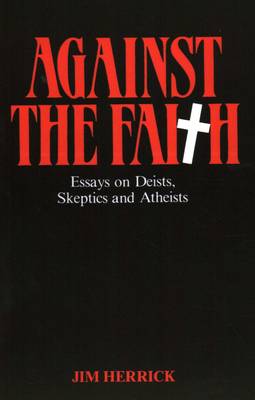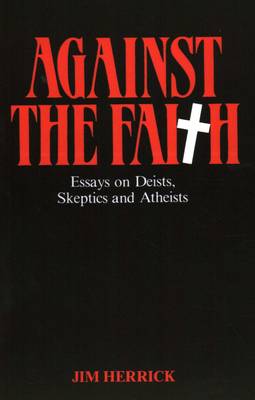
- Retrait gratuit dans votre magasin Club
- 7.000.000 titres dans notre catalogue
- Payer en toute sécurité
- Toujours un magasin près de chez vous
- Retrait gratuit dans votre magasin Club
- 7.000.0000 titres dans notre catalogue
- Payer en toute sécurité
- Toujours un magasin près de chez vous
Description
"The subject of this book is those who have placed themselves 'against the faith', in other words, those who have opposed the prevailing religious faith of their time. Such opponents adopt this position for a wide variety of reasons and in many different ways. They are sometimes fiery activists hammering against leaders and leading ideas and at other times are quiet, contemplative skeptics questioning all knowledge and all orthodoxy. They can be immersed in the politics of their time, like Bradlaugh or Thomas Paine. They can be poets like Heine and Shelley, historians like Gibbon, playwrights like Buchner, or novelists like George Eliot and Mark Twain. They may be scientists like Huxley, or philosophers like J.S. Mill. They may be most at home on the public platform, like Ingersoll, or in the study like Pierre Bayle. They can be relaxed men of the world like Hume or temperamental outsiders like d'Holbach. They may lead quiet and little known lives like the freethinker Collins or the clergyman Meslier, or they may be outstanding polymaths of their age, like Voltaire or Bertrand Russell.This book covers deists, skeptics and atheists. Without attempting to be comprehensive, I have tried to show that there is a spectrum between the three. There has often been close contact between deists, who gently criticize the Christian faith, skeptics who questions all knowledge, and atheists, who detach themselves from any belief in God. Occasionally individuals have held all these positions at different periods of their lives. Furthermore the distinction sometimes made between the respectable philosophic skeptic and the disreputable agitating atheist is not clear-cut: philosophers sometimes agitate and frequently rub shoulders with activists, and reformers and campaigners often think quite deeply.Since this book in the main covers Europe in the eighteenth and nineteenth centuries, the faith opposed is Christianity. A history of opponents to Hinduism, Islam and Buddhism would provide fascinating parallels, but that book has yet to be written. It is a mistake - and one to which opponents are particularly prone - to imagine the 'faith' as a monolithic entity, rather than an accumulation of various traditions. There can therefore be opposition to the faith from within as well as without and heresy and heterodoxy have sometimes been not far apart."
Spécifications
Parties prenantes
- Auteur(s) :
- Editeur:
Contenu
- Nombre de pages :
- 250
- Langue:
- Anglais
- Collection :
Caractéristiques
- EAN:
- 9780879752880
- Date de parution :
- 01-05-85
- Format:
- Livre relié
- Format numérique:
- Genaaid
- Dimensions :
- 161 mm x 237 mm
- Poids :
- 562 g

Les avis
Nous publions uniquement les avis qui respectent les conditions requises. Consultez nos conditions pour les avis.






